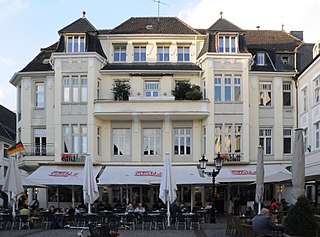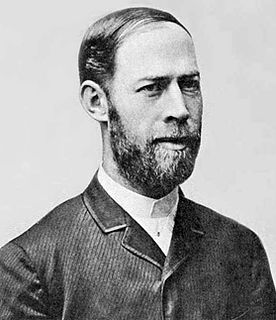A Quote by Rakim
What was once easy became confused and hard, which brings us back to the mystic question, who is God?
Related Quotes
Creativity has three layers; the ultimate is the mystic: he lives in a climate of creativity. The poet, once in a while, brings some treasures from the beyond; the scientist, also very rarely, but whenever he can visit the ultimate he brings something precious to the world. But one thing is certain - mystic, scientist or poet, whatsoever comes into this world comes from the beyond. To bring the beyond is creativity. To bring the beyond into the known is creativity. To help God to be manifested in some form is creativity.
Prayer brings to us blessings which we need, and which only God can give, and which prayer can alone convey to us ... This service of prayer is not a mere rite, a ceremony through which we go, a sort of performance. Prayer is going to God for something needed and desired. Prayer is simply asking God to do for us what he has promised us he will do if we ask him ... Asking is man's part. Giving is God's part. The praying belongs to us. The answer belongs to God.
There is no way to have a real relationship without becoming vulnerable to hurt. Christmas tells us that God became breakable and fragile. God became someone we could hurt. Why? To get us back... No other religion-whethe r secularism, Greco-Roman paganism, Eastern religion, Judaism, or Islam-believes God became breakable or suffered or had a body.
Most of us love a non-self, or something extrinsic and apart from our inner life; but a mother's love during the time she is a flesh-and-blood ciborium is not for a non-self but for one that is her very self, a perfect example of charity and love which hardly perceives a separation. Motherhood then becomes a kind of priesthood. She brings God to man by preparing the flesh in which the soul will be implanted; she brings man to God in offering the child back again to the Creator.
This rose became a bandanna, which became a house, which became infused with all passion, which became a hideaway, which became yes I would like to have dinner, which became hands, which became lands, shores, beaches, natives on the stones, staring and wild beasts in the trees, chasing the hats of lost hunters, and all this deserves a tone.
Well, here’s a scientific question: Has anybody ever seen hard evidence? What we get is theories from our earlier prophets. Now, people who think that God invented us think that the Earth can’t be more than 6,000 years old. So I guess it’s a question of belief. My belief system doesn’t support a creator as such, as we can call God, who created us in His/Her/Its image.
Contemplation is a very dangerous activity. It not only brings us face to face with God. It brings us, as well, face to face with the world, face to face with the self. And then, of course, something must be done. Nothing stays the same once we have found the God within…. We carry the world in our hearts: the oppression of all peoples, the suffering of our friends, the burdens of our enemies, the raping of the Earth, the hunger of the starving, the joy of every laughing child.
God is never a God of discouragement. When you have a discouraging spirit or train of thought in your mind, you can be sure it is not from God. He sometimes brings pain to his children-conviction over sin, or repentance over fallenness, or challenges that scare us, or visions of his holiness that overwhelm us. But God never brings discouragement.
Our confused wish finds expression in the confused question as to the nature of force and electricity. But the answer which we want is not really an answer to this question. It is not by finding out more and fresh relations and connections that it can be answered; but by removing the contradictions existing between those already known, and thus perhaps by reducing their number. When these painful contradictions are removed, the question as to the nature of force will not have been answered; but our minds, no longer vexed, will cease to ask illegitimate questions.
Life, as we find it, is too hard for us; it brings us too many pains, disappointments and impossible tasks. In order to bear it we cannot dispense with palliative measures... There are perhaps three such measures: powerful deflections, which cause us to make light of our misery; substitutive satisfactions, which diminish it; and intoxicating substances, which make us insensible to it.



































